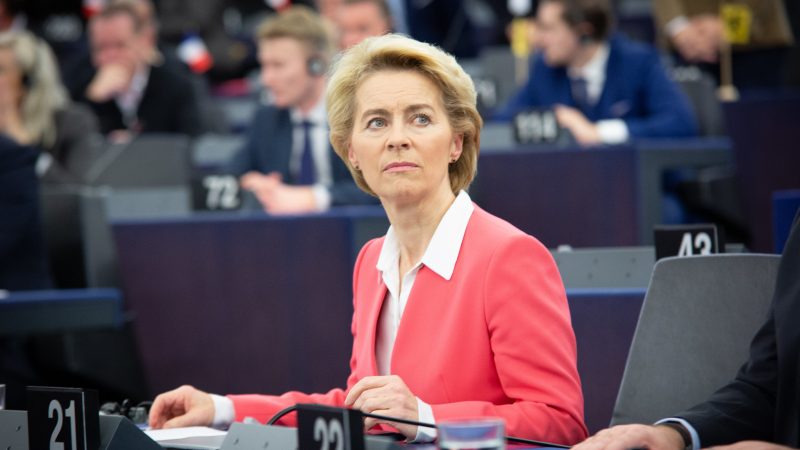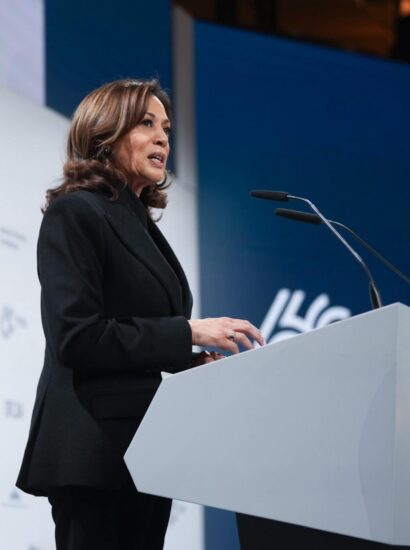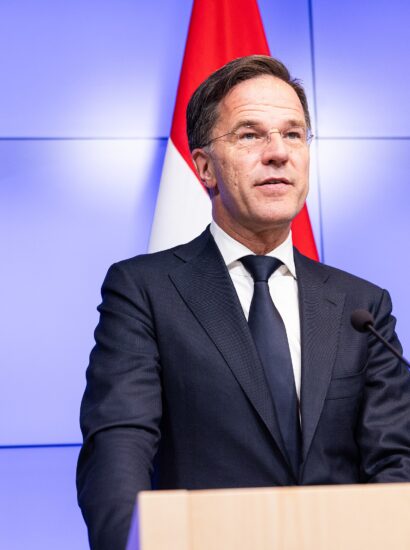In just a few weeks, voters in the 27 EU countries will go to the polls again after five years to decide the composition of the next European Parliament, this time with 720 seats. But the pan-European elections always have another stake, perhaps even bigger than the distribution of seats: who will head the European Commission, the EU’s law-making and executive body, for five years.
If the elections were held tomorrow, the incumbent Commission President, German conservative Ursula von der Leyen, would most likely be the front-runner. The stars and the balance of power favour the former German defence minister, who is widely considered to have performed well despite her mistakes over the past five years, and who was elected by a majority of delegates at the European People’s Party’s (EPP) congress in Bucharest in early March as the official candidate for Commission President of the strongest European party family.
Weber’s Failure Almost Caused Ursula’s Letdown
Being the official candidate of the largest party political formation is not in itself a sure success. Just think of the fiasco of the current EPP president, Manfred Weber, also from Germany, five years ago, when he failed to win the approval of the member states as the top candidate of his party, or Spitzenkandidat in European parlance, after winning the European elections. The choice of the European Council, which officially nominates the President of the Commission, fell on another politician, Ursula von der Leyen, a protégé of former German chancellor Angela Merkel’s, who was largely unknown beyond her own country’s borders. The fact that von der Leyen was elected by only eight votes more than the minimum required is a clear indication of the EP’s difficulty in processing all this. In other words, the first woman President of the European Commission came very close to losing the vote.
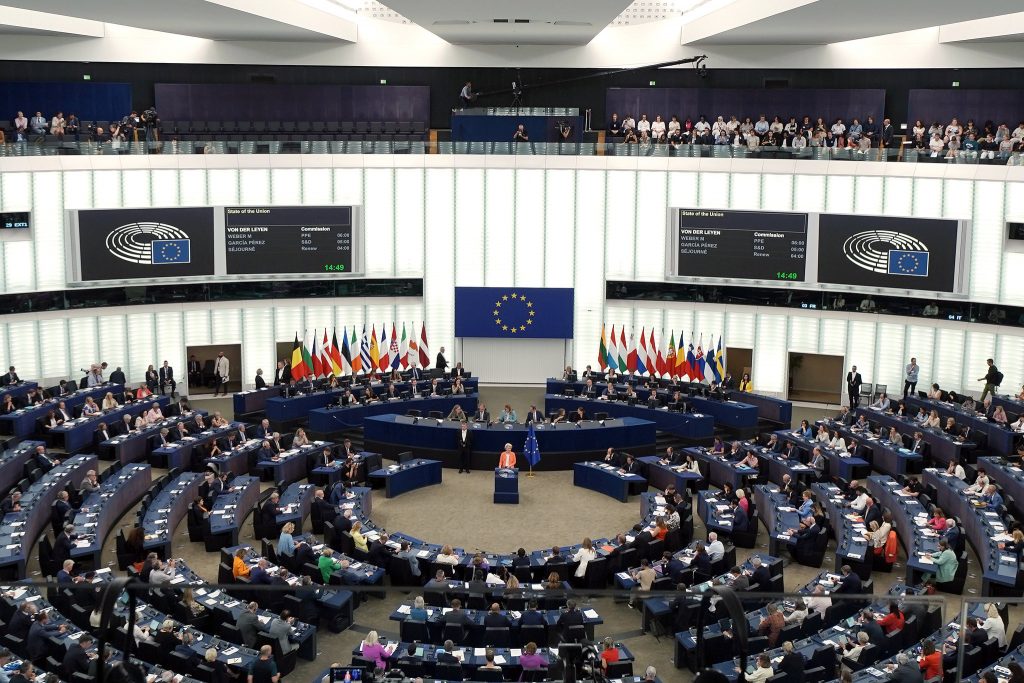
Plenary session of the European Parliament on September 13, 2023 in Strasbourg, France (Photo: EP / Flickr.com)
Escape to Victory
But the Commission President understood the message, that the key to her success will be her ability to win over the European Parliament and its majority during her mandate. This was already the aim of the programme she presented to the European Parliament, with which she tried to win over the majority of the EPP, the Social Democrats, the Liberals and the Greens.
The four key points of the programme – the green deal, increasing the EU’s geopolitical weight, social justice in the dual (green and digital) transition, and respect for the rule of law – essentially covered the preferences of the party groups that make up almost two-thirds of the parliamentary horseshoe and provided a solid backing for von der Leyen’s Commission in its implementation.
So much so that the current Commission has been able to rely on a quasi-government with a parliamentary majority for the past five years.
This idyll has sometimes been marred by disagreements over, for example, the enforcement of the rule of law against certain governments, and in particular the Hungarian government, where MEPs have often criticised von der Leyen’s body for what they see as its overly lenient and soft approach. As a sign of this, the EP recently decided to take the Commission to the European Court of Justice over the more than EUR 10 billion in cohesion policy funding made available to Hungary last December. However, this is more of a political pressure exercise and some observers would not be at all surprised if the action is withdrawn under the new Parliament.
Crises: Opportunities and Hijackers
Another of von der Leyen’s great achievements, which many of her opponents have also achieved, apart from taming the EP, has been relatively effective crisis management, which has managed to keep the EU united in difficult situations. It is probably not an exaggeration to say that no Commission President has ever faced so many tough tests as the one Ursula von der Leyen has faced over the past five years. The pandemic and the unprecedented economic recession in its wake, which was quickly overcome thanks to the right measures, the Russian aggression against Ukraine and the related energy crisis, and the fight against record inflation have virtually filled the last five years and, contrary to many expectations, have not shaken the EU and European societies.
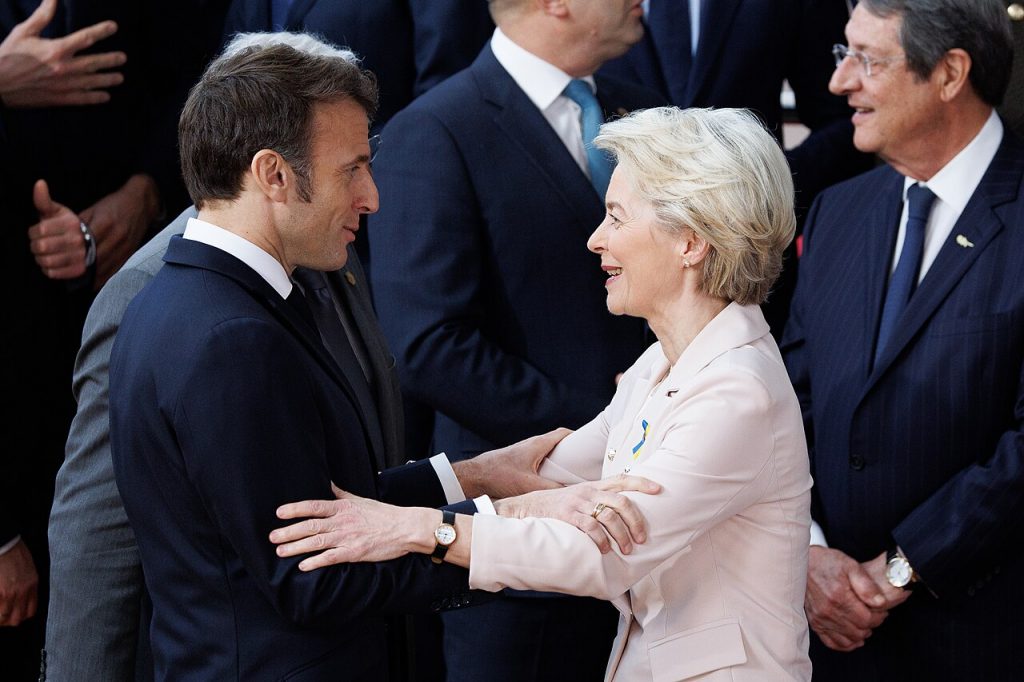
French president Emmanuel Macron and European Commission President Ursula von der Leyen in 2023 (Photo: EU/Christophe Licoppe)
The right and sometimes ground-breaking decisions taken by von der Leyen and the Member States, such as the joint purchase of vaccines or the first ever joint bond issue to repair the damage caused by the coronavirus epidemic, have played a major role in this. From day one, the Commission President has also consistently backed quasi-unconditional support for Ukraine, which has found partners in the leaders of the member states, with the exception of the Hungarian Prime Minister.
However, the permanent crises have also eroded the strategy von der Leyen announced at the beginning of her five-year mandate, partly undermining public support for the green transition because of rising costs.
The opportunism of von der Leyen and her European People’s Party nominee, and what some see as her pragmatism, is illustrated by the fact that in the last year of her term as Commission President she has been forced to stop or even turn a blind eye to a number of projects under the umbrella of the Green Deal, such as the costly and bureaucratic greening of the agricultural sector or the radical reduction of pesticide use.
Nevertheless, the concessions made to the farmers, who have been unresting and upsetting the European quarter of Brussels three times in the last month or two, can also be seen as a reasonable adjustment to the original scenario. With the war in Ukraine and the subsequent price hikes, European consumers were apparently unable and unwilling to pay the skyrocketing costs of greening compared to the original calculations.
Reelection of Ursula von der Leyen: Back to Square One
This, combined with changing geopolitical constraints, also means that, if re-elected, von der Leyen will pay particular attention to two new priorities, while maintaining and partially adjusting the pillars of the current strategy. The first is to improve Europe’s rapidly deteriorating competitiveness (less regulation, a clean industrial plan and increasing protectionism) and the second is to develop Europe’s defence capabilities at a forced pace, if you like, putting the European economy in war mode against the increased Russian threat.
A new sense of urgency to redouble efforts is given by the increasingly likely return to the White House of Donald Trump, who is prepared to put aside traditional US strategic interests in the EU, which could create a completely new situation.
It is not surprising that at a time of crisis and turbulence, national governments responsible for nominating the Commission President prefer continuity, with a politician who has been through the tough times and knows the challenges well at the helm of the European Commission for the next five years. This is probably why the choice of potential challengers is not very wide. So far, only the socialists and the Greens and the far left have put forward a top candidate, but the general consensus is that none of them will be able to knock the incumbent out of the saddle.
In the European Council, von der Leyen should have no difficulty in securing the qualified majority needed to nominate her. Only one member state leader, Hungary’s Viktor Orban, is openly opposed to the German politician’s re-election, but for the vast majority, an extension will be a natural or at least acceptable step.
Pulling the Center Back from the Brink is the Only Viable Strategy
Ursula von der Leyen knows best from her own example that it is not enough to win the support of the heads of state and government if the approval of the majority of the EP cannot be taken for granted. Especially as most forecasts predict a strong shift to the right in the European elections, with a strengthening of Eurosceptic, populist and far-right forces. Since the current Commission President cannot expect any particular goodwill from them, she will be even more dependent on the votes of the pro-European centre, which is shrinking but is still expected to retain its majority.
Observers partly explain why the parliamentary vote on the next Commission President could slip to September instead of July. The new EP is scheduled to hold its inaugural session on 16 July, but this seems too early to hold the decisive vote.

